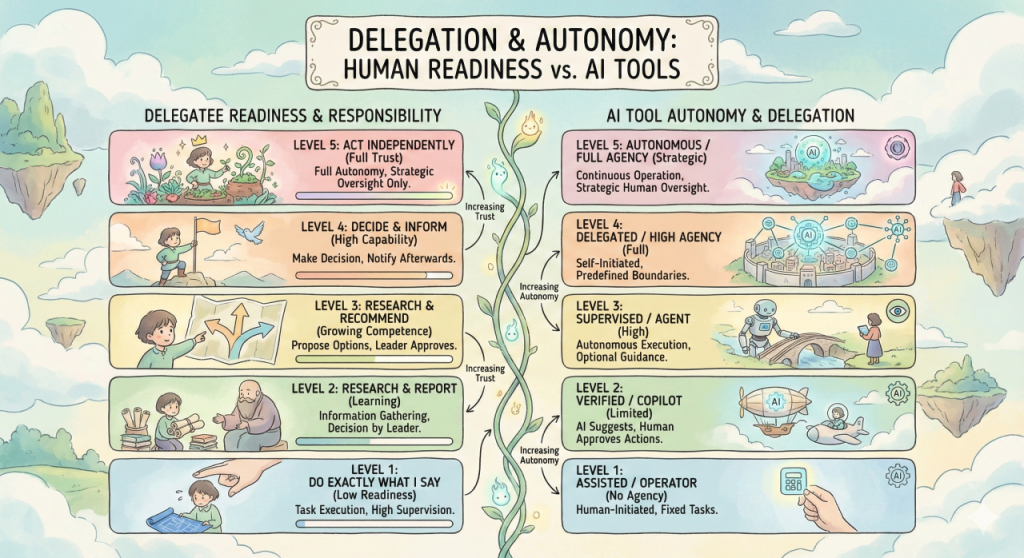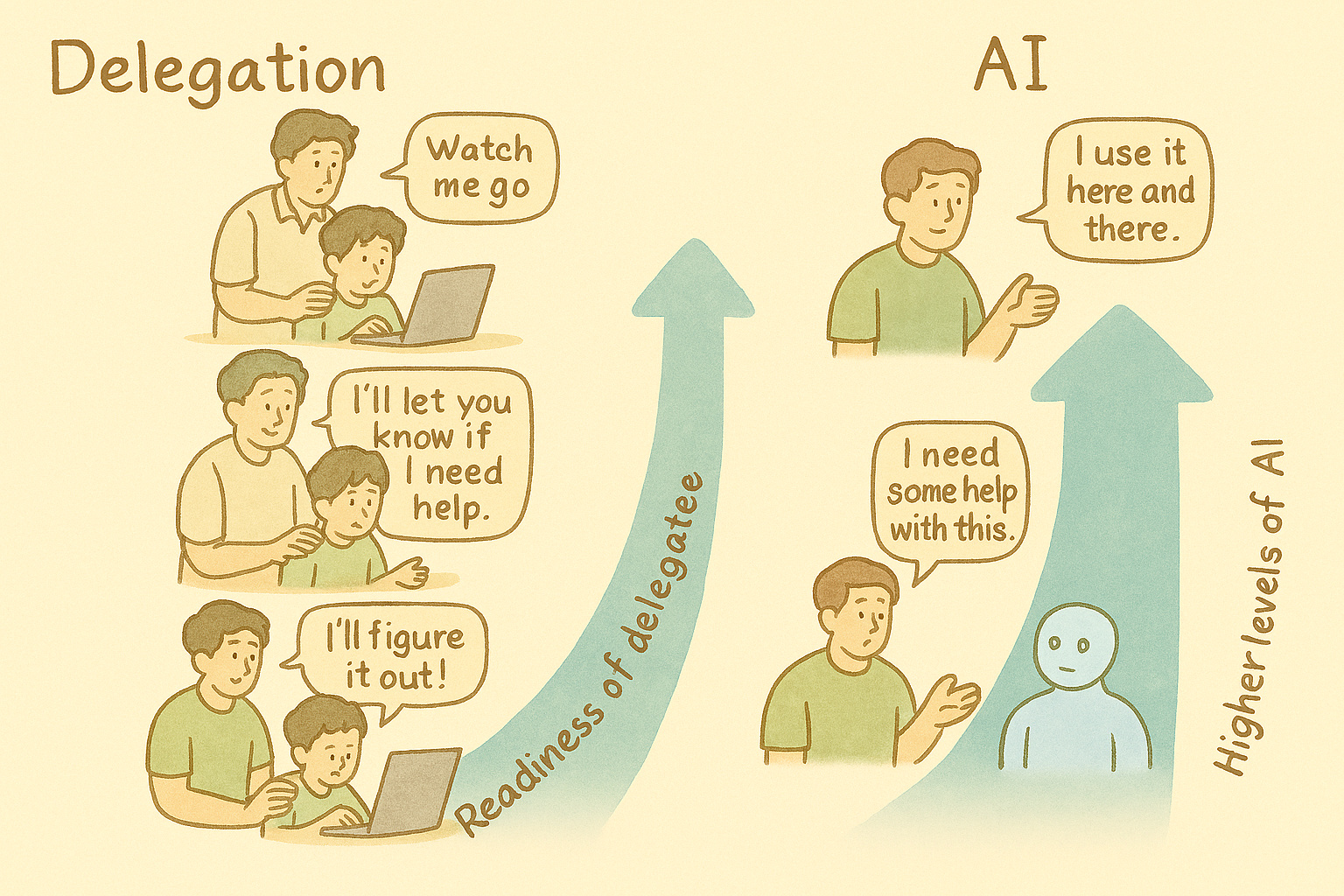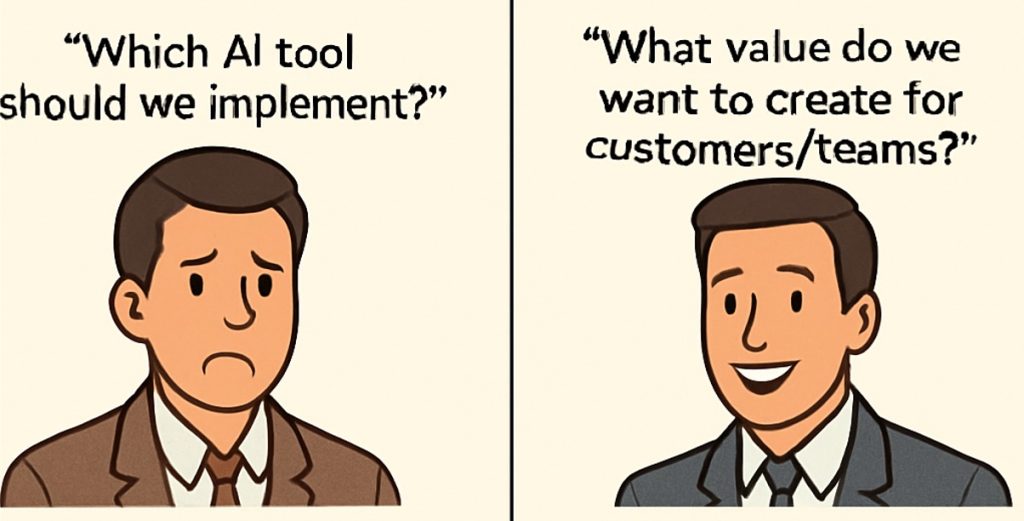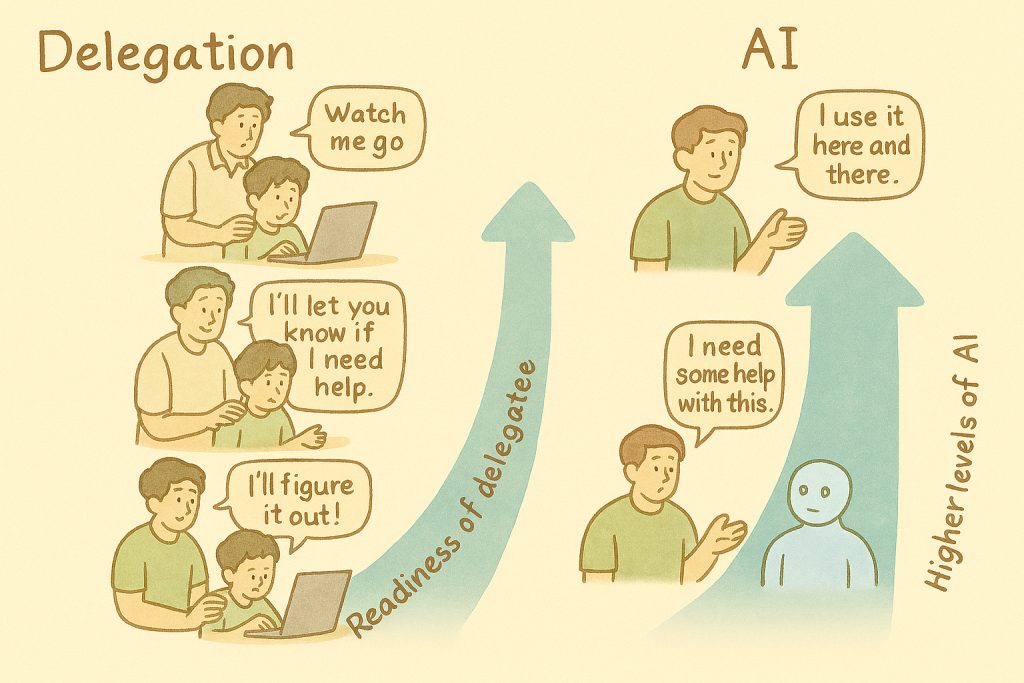I recently wrote about my journey towards becoming a developer again.
Post that, I have received many queries and request for tips from many who wanted to try their hands at development again.
Also recently, there was a workshop that I conducted for emerging leaders.
One of the topics was about delegation.
After deciding what to delegate [topics where your unique value addition opportunities would be relatively lesser] and whom to delegate to [depending on the readiness of the delegatee],the natural question was how much to delegate and how would I know that things are not falling through any cracks..
In my previous blog, I had mentioned that the AI enabled IDE may be treated as an experienced thought partner for design decisions and an overenthusiastic intern when it comes to coding.
The lightbulb moment was that the same delegation model may be applied with you start working with AI enabled tools.

In the first stage, you would want to take all decisions, including when code may be generated.
My sessions in cursor invariably start with – let us discuss… …., do not generate any code, till I explicitly say so.
That is essentially level 1.
But, as a thought partner, you do not want to keep the leash too short.
To derive the benefit of the rich, collective knowledge base across the industry, you may consider level 3 of delegation – research and recommend.
The situation would change when you are dealing with Agents.
The developed agents should preferably start at level 3 – since they have the algorithms already passing through levels 1 and 3.
If the agents have the capability of learning and improving, starting at 3 and slowly moving to level 5 – autonomous systems.
A rough comparison of the levels of autonomy in the automobile ADAS systems and the levels of delegation also have a positive and close correlation.
Take this with the other basic tip – do not take the first response from an LLM at face value.
Engage in further conversation to refine the response and confirm that your expectations have been understood.
Let me know if any other approaches have worked for you.






One Response
Well summarized Savitha.